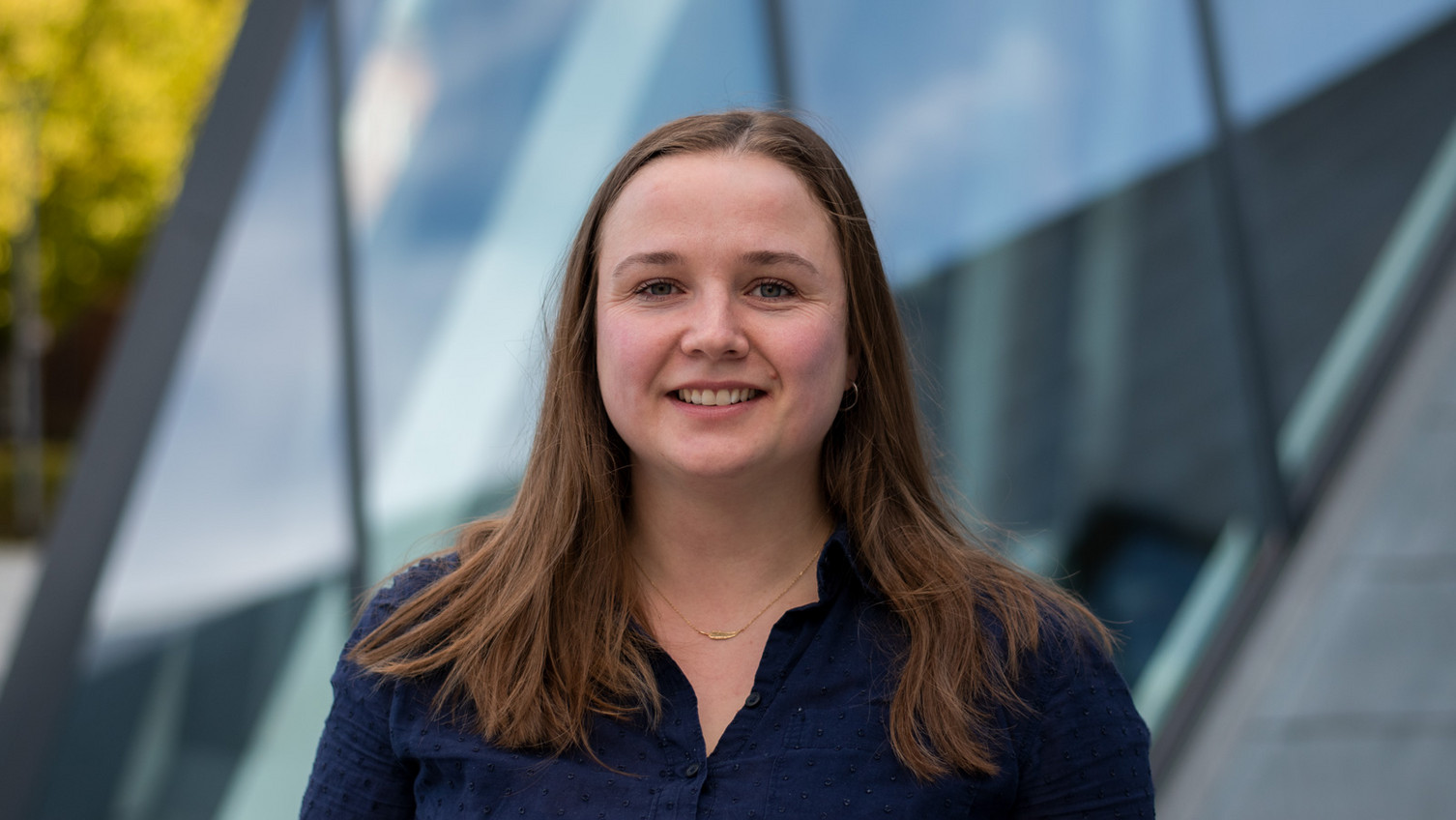Teaching Award 2020: Camilla Cassidy - "Figuring out how to figure things out”
2020-11-06 Dr. Camilla Cassidy, Faculty of Sustainability, is awarded the Teaching Award 2020. The announcement of this 2000 Euro teaching award called for outstanding achievements since the winter semester 19/20. For more than ten years, Leuphana has been honouring outstanding achievements in teaching and teaching development in this way.
Camilla Cassidy is a research assistant and coordinator of the "Studium Individuale" programme, which does not include a prescribed curriculum. Students compose it themselves, which offers them a great deal of freedom, but at the same time requires a high degree of personal responsibility, as well as guidance and support from the teaching staff. In its proposal for the Teaching Award 2020, the programme student council Studium Individuale particularly emphasises the advisory services developed and implemented by Camilla Cassidy. These went far beyond classic consultation hours. In her continuous feedback Camilla Cassidy shows that she dedicates herself to the learning process of each individual with expertise and openness instead of taking the simple path of 'one fits all' solutions.
"The Teaching Award is granted in recognition of Camilla Cassidy's outstanding commitment to the Studium Individuale and her innovative and research-oriented teaching in the sense of a self-responsible and self-directed but at the same time perfectly supported education," explains Dr. Judith Gurr from the Teaching Service, explaining the decision of the Presidential Board based on the nominations by students and study commissions. In her interdisciplinary methods seminar "Ways of Knowing" for Studium Individuale first semester students, Camilla Cassidy emphasises self-determined learning and independent experimentation with scientific methods: "This course explores ordinary objects and, by subjecting them to a series of 'actions' or research methods, shows seemingly simple things from several and surprising perspectives," explains Camilla Cassidy. For example, a group of students chose 'bicycles' as an object. They conducted surveys with people who repair their bikes at the student workshop "KonRad" to evaluate user behaviour and attitudes: Why are bicycles used in Lüneburg and what is the context of this use?
Another student, who bases her choice of subjects within the Studium Individuale on the topic of "alternative education", chose "(seating) benches" as a course object. In the seminar she visited and interviewed teachers at schools and developed a concept of how different arrangements of benches can improve teaching.
Camilla Cassidy is aware that the seminar is quite demanding: "The whole structure of the course requires students to be very active. They are encouraged to be independent. But we have a lot of conversations and they try out ideas with each other and with me. We discuss their ongoing work. The principle of the course is that nobody is expected to be perfect in one method within a single week. Instead, it is important that they show a learning process and that they know to be careful when applying a certain method to a certain question. The goal of the course is achieved when students know how to get knowledge, so to speak - it is about figuring out how to figure things out." To reflect on their own learning process, students wrote research diaries to document what went well, what did not go so well and how they would change their method in the future based on their experiences.
"One afternoon a week was set aside for discussing work in progress and one for discussing feedback on completed work," says Camilla Cassidy, explaining her extensive range of guidance. Camilla Cassidy has also put together a remarkable, comprehensive handbook for the course, in which she explains the structure, learning objectives, and test performance and criteria in a clear and detailed way, so that students can develop their own path through the course. "The student proposal and evaluation show that this was a scientifically very demanding and challenging seminar, plus the challenge of a heterogeneous student body", comments Judith Gurr, "the positive response from participating students and departmental representatives is therefore all the more remarkable".

